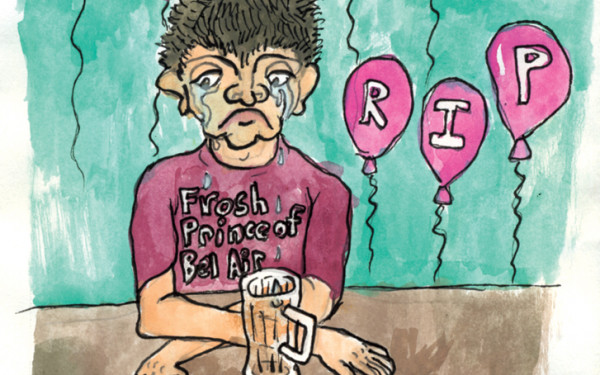Editorial: A Broken Rollout to Concordia’s Sexual Misconduct Task Force
Every student knows that when a project is rushed, it’s more likely to be bungled, and fixing the bungles will end up taking longer than having just done the project properly in the first place.
Concordia University’s administration does not seem to have firm a grasp of this concept, judging by current delay in the establishment of the Task Force on Sexual Misconduct and Sexual Violence.
The Task Force, whose creation was announced Jan. 10, will meet with Concordia community members, look over policies and approaches, and examine if Concordia is safe. The plan is for them to present their findings to Concordia’s highest decision-making body, Senate, in May, and then to issue a report in June.
It will have 12 members. Three are known: Deputy Provost Lisa Ostiguy, Vice-Provost of Faculty Relations Nadia Hardy and Concordia’s senior legal counsel Melodie Sullivan. The other nine spots will be composed of two undergraduate students, two graduate students, one part-time and one full-time professor, two staff members, and one external member.
An email sent to students from the school on Jan. 25 outlined the application process; Ostiguy, Hardy, and Sullivan were going to select the student members from those who applied. If that plan had gone forward, after a deadline extension to Feb. 8, it would have given the months of March and April to comprehensively review Concordia’s entire sexual violence infrastructure.
However, the Concordia Student Union challenged that plan, saying it was rushed and illegal. According to the Quebec Act Respecting the Accreditation and Financing of Student Associations, only student unions can appoint student members to university bodies. The CSU also criticized how few undergraduates were present on the Task Force, and felt the requirement that students applying be in good academic standing were unfair to survivors of sexual violence.
On Feb. 2, the school relented and allowed the CSU to appoint members—informing the CSU mere minutes before informing the student body. And the administration did not change the Feb. 8 deadline, despite CSU bylaws mandating 10 days for an application process.
Regardless, the CSU will accept student applications until Feb. 16.
Then, when asked to share the applications of students who applied through Concordia’s process with the CSU on Feb. 8, the school said no.
Thankfully the administration changed tune the next day and opted to send the CSU the names of the applicants, but the knee-jerk reaction against cooperation speaks volumes about their priorities through this whole process.
We appreciate the intention of making a speedy response to a problem, but by trying to get the Task Force together, and then over with, as soon as possible without considering the ramifications of doing so, the administration slowed the entire process down.
With the CSU’s Feb. 16 application deadline—the Friday before reading week, no less—reliable results from the Task Force could be pushed back further. If planning incorporated the student body from the start, this could all have been avoided.
These hasty attempts by the administration to find a solution, any solution, to move past the misconduct has heightened awareness of other campus groups’ lack of preparedness when it comes to dealing with sexual violence.
The Arts and Science Federation of Associations’ sexual violence policy, as it stands, includes a provision that asks complainants in sexual misconduct cases to meet with their harassers or abusers and then to seek in-person mediation before other formal processes—if the complainant feels safe and comfortable with that, that is. It seems like a stretch that anybody would feel safe and comfortable in that kind of situation.
ASFA seems to recognize this flaw, since they discussed the policy at last week’s regular meeting—behind closed doors. We’re glad that they’re making an effort to change the policy, but that is not the type of discussion that should be happening while the community is kept in the dark. They owe it to their members, their students whom they are elected to represent, to be as transparent about the process as possible, and ask for feedback on how their membership would like to see the policy changed.
As for the CSU, it doesn’t have a sexual violence policy. Within the CSU Safer Space policy outlines an approach to building consent culture and preventing sexual misconduct on campus, which is good. But it falls short of presenting a codified approach to dealing with the aftermath of sexual violence—something vital both practically and symbolically, since the CSU’s priorities influence the direction of other faculty associations. Plus having rules on the books that anybody can access helps everyone understand what’s what.
Hopefully the drafting of a new policy for the CSU and the updating of ASFA’s policy can be models for including students in a responsible, thoughtful way, and can show the administration how it should be done.
We’ll see.





